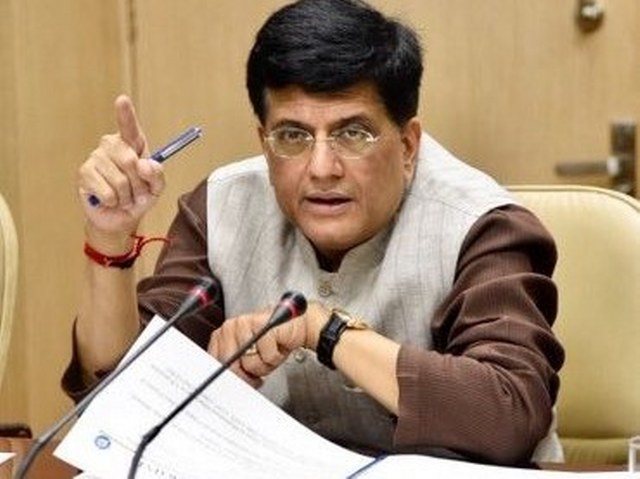‘7th pay panel recommendations affected Railways’ health’

File Photo
New Delhi: Union Railway Minister Piyush Goyal on Wednesday said Indian Railways has been spending an additional Rs 22,000 crore on salaries and pensions of its employees following implementation of the 7th Pay Commission recommendations, which has hit its financial health.
The Minister’s statement came amid criticism over the Comptroller and Auditor General (CAG) report saying the Indian Railways’ operating ratio may be the worst in the last 10 years.
Responding to a question on operational losses of the railways during Question Hour in the Lok Sabha, Goyal said: “After the implementation of seventh pay commission recommendations, there has been an over expenditure of Rs 22,000 crore for salaries and pension of railway employees. This has contributed to the overall operating loss.”
He said railways spend a lot of money on cleanliness, running suburban railway trains, gauge conversions and other such things.
“All these cost and have an effect on railways,” he said.
“When we see the overall picture, implementation of the seventh pay commission recommendations and running trains under social obligations lead to operating ratio going down by 15 per cent in just one year,” the Minister said.
Goyal said the time has come to explore the possibility of separating the budgets of social obligation expenditure and trains running in commercially viable sectors.
His remarks came two days after the CAG tabled its report in Parliament and highlighted that the Indian Railways recorded an operating ratio of 98.44 per cent in the 2017-18 financial year, which is the worst in the previous 10 years.
In its report, the national auditor said, “Since 2016-17, railways’ revenue surplus has been falling which is indicative of failing financial health of Indian Railways.”
It said that during the year 2017-18, the net revenue surplus decreased by 66.10 per cent from Rs 4,913 crore in 2016-17 to Rs 1,665.61 crore in 2017-18.
“The factors mainly attributable to meagre surplus were increase in working expenses (8.14 per cent) and negative growth rate of sundry earnings (16.20 per cent). Staff cost including pension payments constituted the bulk of working expenses,” it said.
“The steadily declining performance of Indian Railways is reflected in the Operating Ratio (OR) of 98.44 per cent which was the worst in the last ten years,” the CAG report stated.
The report highlighted that the national transporter would, in fact, have ended up with a negative balance of Rs 5,676.29 crore instead of a surplus of Rs 1,665.61 crore but for the advance received from NTPC and IRCON.
“Similarly, OR would have been 102.66 per cent,” it said.
According to the railway officials, the operating ratio is a measure of expenditure against revenue, and it shows how efficiently the national transporter is operating and how healthy its finances are.
An operating ratio of 98.44 per cent means that the Railways spent Rs 98.44 to earn Rs 100.
Goyal also informed the Lok Sabha that construction of new lines and operating trains in economically unviable areas under its social obligations also take away a sizeable amount of its funds.
IANS




